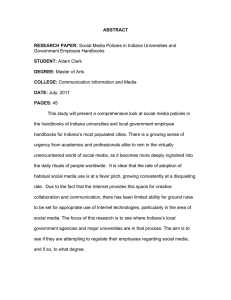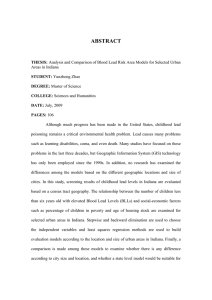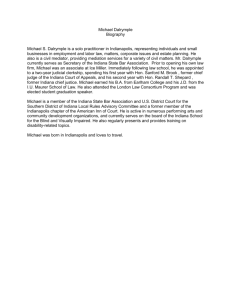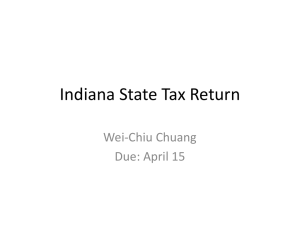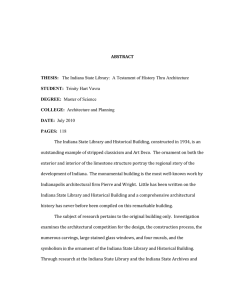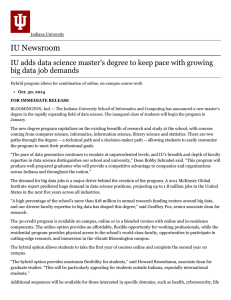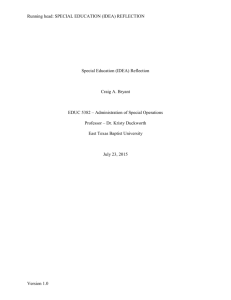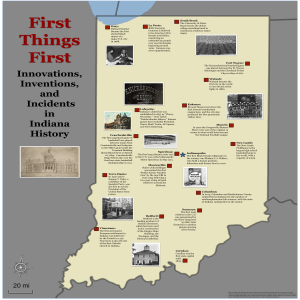Indiana`s Transition Initiative for Young Children and Families
advertisement
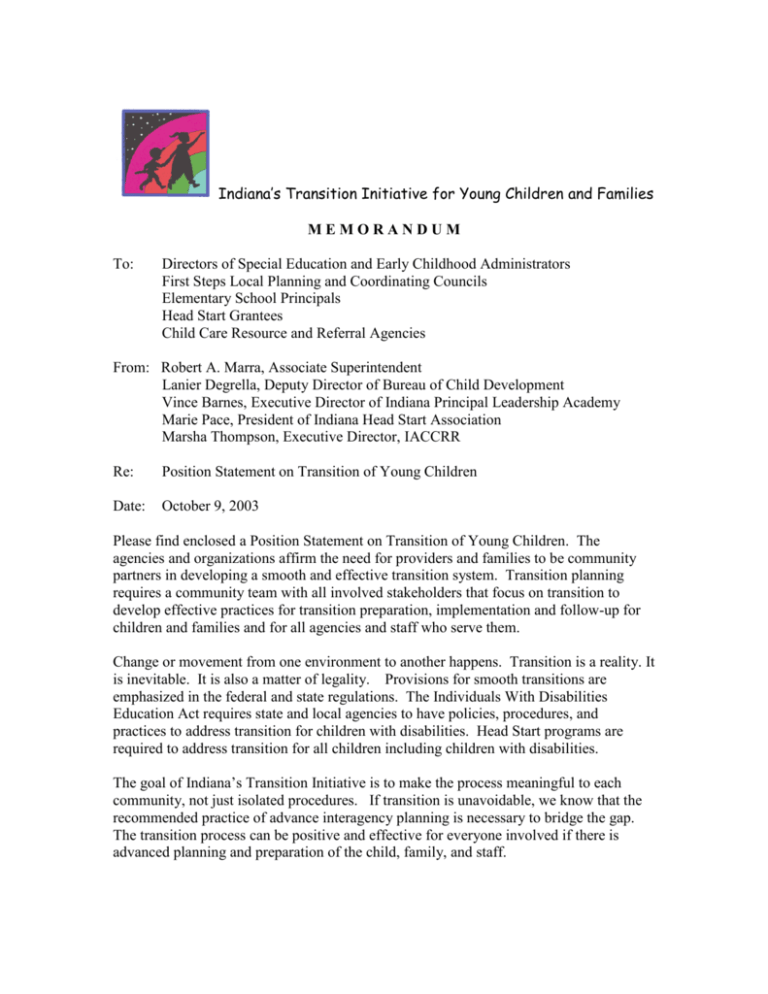
Indiana’s Transition Initiative for Young Children and Families MEMORANDUM To: Directors of Special Education and Early Childhood Administrators First Steps Local Planning and Coordinating Councils Elementary School Principals Head Start Grantees Child Care Resource and Referral Agencies From: Robert A. Marra, Associate Superintendent Lanier Degrella, Deputy Director of Bureau of Child Development Vince Barnes, Executive Director of Indiana Principal Leadership Academy Marie Pace, President of Indiana Head Start Association Marsha Thompson, Executive Director, IACCRR Re: Position Statement on Transition of Young Children Date: October 9, 2003 Please find enclosed a Position Statement on Transition of Young Children. The agencies and organizations affirm the need for providers and families to be community partners in developing a smooth and effective transition system. Transition planning requires a community team with all involved stakeholders that focus on transition to develop effective practices for transition preparation, implementation and follow-up for children and families and for all agencies and staff who serve them. Change or movement from one environment to another happens. Transition is a reality. It is inevitable. It is also a matter of legality. Provisions for smooth transitions are emphasized in the federal and state regulations. The Individuals With Disabilities Education Act requires state and local agencies to have policies, procedures, and practices to address transition for children with disabilities. Head Start programs are required to address transition for all children including children with disabilities. The goal of Indiana’s Transition Initiative is to make the process meaningful to each community, not just isolated procedures. If transition is unavoidable, we know that the recommended practice of advance interagency planning is necessary to bridge the gap. The transition process can be positive and effective for everyone involved if there is advanced planning and preparation of the child, family, and staff. The opportunity for building a focused transition team is available in your community. Interested communities may receive transition system development training and followup technical support at no charge. This training is also available if you have an existing team, but need to think in a more comprehensive manner or need to do some team building and develop strategies for facilitating transition with administrators, service providers, families, and children. We realize that implementing a comprehensive transition system for young children cannot take place without the support of agency and school administrators. That is why we would like to invite and encourage your support and the participation of your staff in this technical assistance initiative. For further information, contact the Regional Transition Facilitator in your area or Mary Jo Paladino, State Transition Coordinator.



